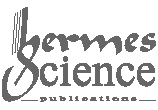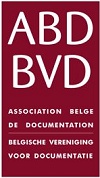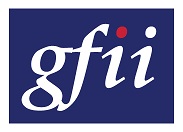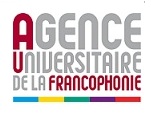Invited talk
Knowledge organization in the context of Information and Communication Science : A French exception?
in knowledge organization
Université de Toulouse 3
LERASS, 115 B, Route de Narbonne, BP 67 701, 31077 Toulouse cedex4
Click to see the abstract
The alliance between Information Science and Communication Science has often been seen as a French specificity. This was probably due to the necessity to bring together a sufficient quantity of researchers in order to obtain institutional recognition during the seventies. Considering that at that time, the scientific interest of such an alliance may have been considered as limited, the founders of this discipline now identified as 71st section of the National Council for Universities (called CNU in French (CNU stands for Conseil National des Universités), have made the necessary effort to specify and to take advantage of the links that units them.
The theme of Knowledge Organization has been during over ten years, a major concern for the founders, probably because it favored a reflexive insight on a discipline that was under elaboration. Progressively, as technical aspects were becoming more important than fundamental research and the institutionalization of the discipline having been fully acquired, French researchers became less preoccupied with their affiliation to a discipline that had actually been recognized as an interdisciplinary research field. However, being affiliated to a discipline which legitimacy can be challenged at any time by recompositions imposed by research administration authorities, depends on the collective and continuous elaboration of a common scientific project. Recent research endeavours follow along theses lines.
On the other hand, it becomes everyday less possible to consider science in relation with the administrative frontiers that delimit its area, methodologies, objects, concepts and approaches. This is why keeping with a specific approach or joining an international stream, enriches debates and thus makes knowledge progress.
The object of this opening conference is, thanks to revisiting the researches carried out by the pioneers of this discipline, to have an insight of the link they made between information and communication through the proposals made to their research community. Then to follow this link and the way it is analyzed now and to reintroduce it into an international context, in order to answer the following question: is there really a French exception in the way we conduct our research on Knowledge Organization?
Metadata about what?
Distinguishing between ontic, epistemic, and documental dimensions
in knowledge organization
Vice-president, ISKO
University of Pavia. Science and Technology Library
Click to see the abstract
The spread of many new media and formats is changing the scenario faced by knowledge organizers: as printed monographs are not the only standard form of knowledge carrier anymore, the traditional kind of knowledge organization (KO) systems based on academic disciplines is put into question. A sounder foundation can be provided by an analysis of the different dimensions concurring to form the content of any knowledge item – what Brian Vickery described as the steps “from the world to the classifier”. The ultimate referents of documents are the phenomena of the real world, that can be ordered by ontology, the study of what exists. Phenomena coexist in subjects with the means and perspectives by which they are considered, that is their aspects, pertaining to epistemology; and with the formal features of knowledge carriers, adding a further, pragmatic layer. All these dimensions can be accounted for in metadata, but are often so in mixed ways, making indexes less rigorous and interoperable. For example, while facet analysis was originally developed for subject indexing, many “faceted” interfaces today mix subject facets with form facets; and schemes presented as “ontologies for the Semantic Web” also code for non-semantic information. In bibliographic classifications, phenomena are often confused with the disciplines dealing with them, the latter being assumed as the most useful starting point, for users will have either one or another perspective. However, this assumption means that the only role of KO is to keep the status-quo, rather than to encourage interdisciplinary connections that could stimulate research, as is recommended by the León Manifesto. A general citation order of dimensions: phenomena, aspect, carrier is recommended, helping to concentrate most relevant information at the beginning of headings. Integrative Levels Classification is an experimental KO system allowing to treat phenomena, aspects, and carriers as separate dimensions that can all be represented in compound classmarks, searched alone or in combination with the others, and presented in meaningful orders.













